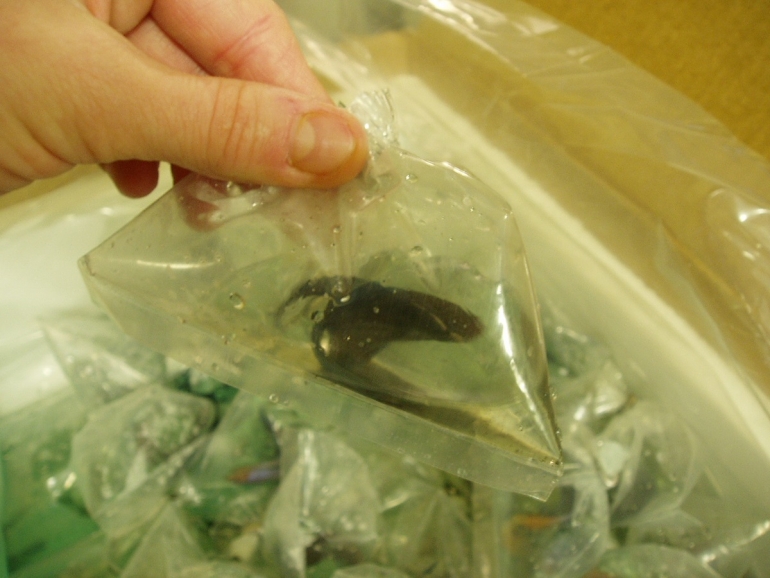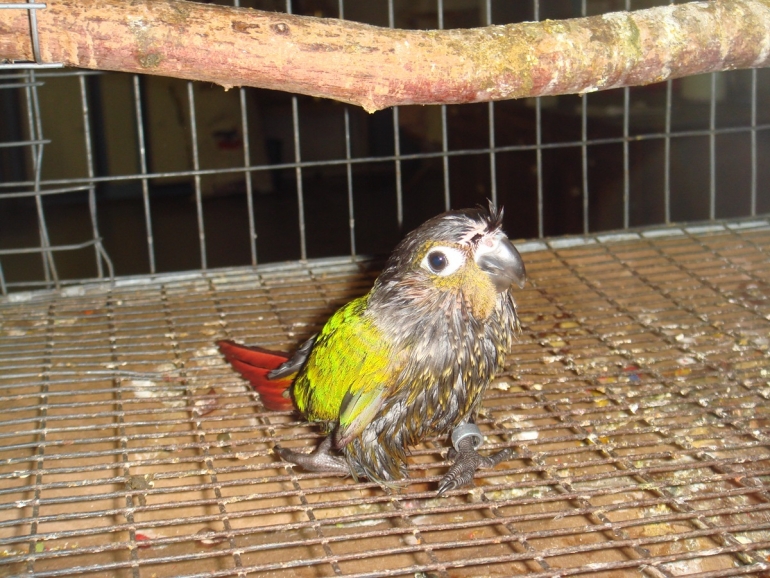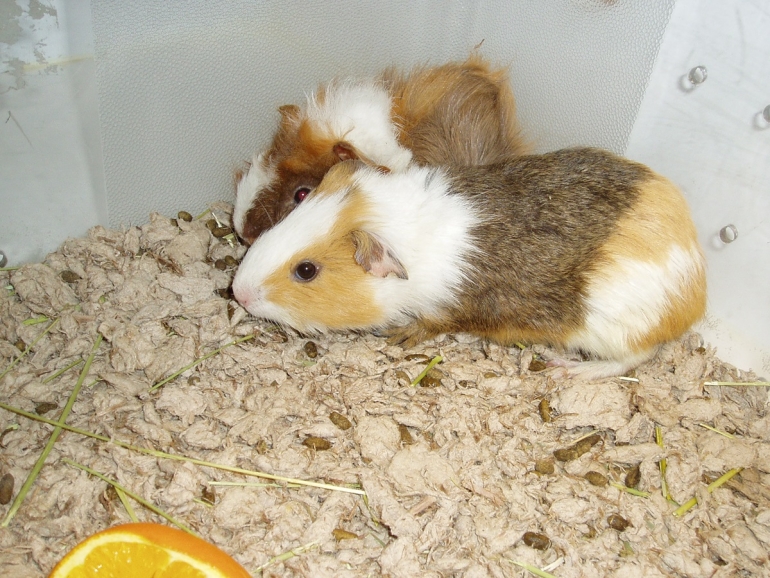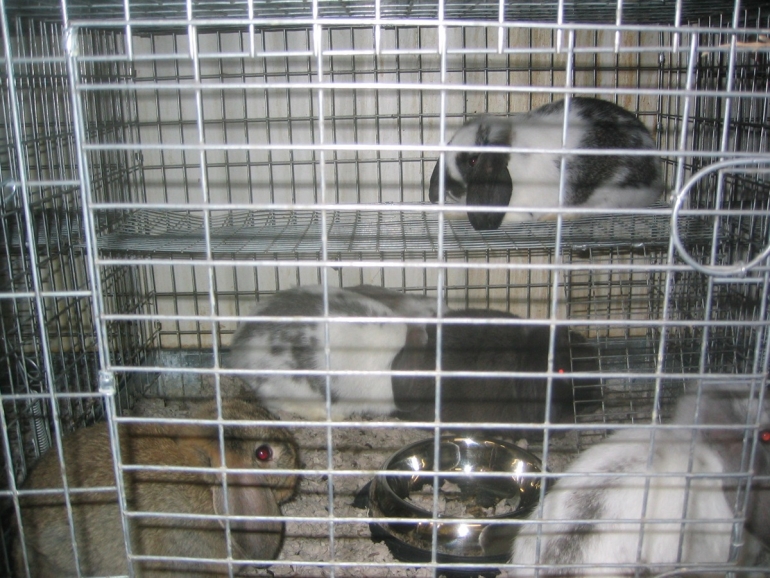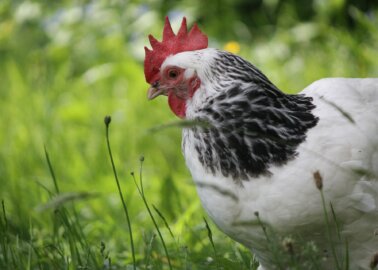The UK’s 4 Saddest ‘Pets’
Animals are awesome! It’s not really a surprise that people want to observe and interact with these cute, cuddly, exotic or even majestic beings in close quarters. Some animals, like domesticated dogs and cats, cannot live “free” in our concrete jungles, so we’re responsible for their care. But there are others whose quality of life is extremely diminished when we make them our “pets”.
The following information offers some insight into the lives of some of Britain’s most popular companion animals:
Fish
Fragile tropical fish, who were born to dwell in the majestic seas and forage among brilliantly coloured coral reefs, suffer miserably when they’re forced to spend their lives in glass tanks. The same is true of freshwater fish. Robbed of their natural habitats and denied the opportunity to travel freely, they must swim around endlessly in the same few cubic inches of water.
Fish have cognitive abilities that equal and sometimes surpass those of nonhuman primates. They can recognise individuals, use tools and maintain complex social relationships.
Fish communicate with one another through a range of low-frequency sounds, from buzzes and clicks to yelps and sobs. These sounds, which are usually drowned out by the noise of pumps and filters, communicate emotional states such as alarm or delight and help with courtship. “[A]t the least, we’re disrupting their communication; at worst, we’re driving them bonkers”, says ichthyologist Phillip Lobel.
What You Can Do
Please don’t support the tropical-fish trade by purchasing fish. If you enjoy watching fish, consider downloading one of the many colourful and realistic fish-themed computer screensavers available on the Internet. And don’t support businesses or fairs that give fish away in contests or promotions.
Birds
Birds who are kept in cages are often improperly cared for – they’re bored, lonely and a long way from their natural homes.
All caged birds were either captured or bred in captivity. Just as there are puppy mills, there are now enormous bird factories, in which breeders warehouse thousands of parrots and other exotic birds, who are frequently confined to dirty, dimly lit cages, unable even to stretch their wings fully.
Many people buy birds on impulse and then don’t have a clue about how much time, money and energy are needed to care for them. When the birds who seemed so cute and lovable in pet stores turn out to be noisy and messy, many are abandoned – and few live out their natural life spans. (Some birds can live for more than 100 years.)
What You Can Do
Never buy a bird from a pet store or buy companion-animal supplies or food from stores that sell birds. If you or people you know already have birds and are unable to provide them with companionship and space in which to fly, please consider taking one of the following actions:
- Find out if there is a bird sanctuary or large indoor/outdoor aviary (or an outdoor one in a very warm climate) where you can place the bird.
- If you cannot find a reputable sanctuary, consider placing the bird with someone who has other birds of the same species, allows them to live in a free-flight situation and will never separate them once they’ve bonded.
Guinea Pigs
These fragile animals, along with other small exotic animals, such as hamsters, hedgehogs, sugar gliders, prairie dogs, jerboas and spiny mice have become popular “pocket pets”. Despite their popularity, guinea pigs aren’t worth as much as a bag of dog food to the stores that peddle them. Pet stores’ negligent policies often result in cruel mistreatment of guinea pigs.
What You Can Do
If you’re willing to open your home to one or, preferably, two guinea pigs, please adopt them from an animal shelter or rescue group. Before you do, be prepared to care for your guinea pig for as long as seven years or more and to spend about £14 per week on food, hay, bedding, etc. An exotic-animal veterinarian will need to see the guinea pig annually and can also help with regular nail trimming, which is a must. If you’re housing a male and female together, you must also first have them sterilised. However, spay/neuter surgeries are more dangerous to perform on small animals, so it’s preferable to house females with other females and males with no more than one other male – three or more males together will fight.
The cartoon rabbits pictured on Easter cards might look cute and cuddly, but real rabbits have no place in the pet industry. These complex animals are often purchased on a whim, especially in the spring, and potential caretakers rarely understand the specific needs of their new companions. Once the novelty has worn off, many bunnies are neglected, relegated to outdoor cages, dumped at animal shelters or simply turned loose in the wild, where they have little chance of surviving. Hundreds of organisations and animal shelters are trying to deal with this growing problem.
Rabbits are social creatures with gentle natures and individual personalities, and they need just as much attention as a dog or a cat. They’re not suitable companions for young children. Rabbits require specific foods, stimulating environments and veterinarians who have specialised knowledge of their species.
What You Can Do
If, after careful consideration, you decide to welcome a rabbit into your home, please adopt a rabbit from your local rescue group. Rabbits can live more than 10 years and require annual check-ups by a veterinarian who is familiar with rabbits. Bunnies need a lot of company and can become withdrawn and depressed if they’re not provided with plenty of love and companionship. Rabbits do get along with dogs and cats, if they’ve all been safely socialised.
****
If you take away nothing else from this post, be sure to remember to adopt instead of buying! Buying any animals, including fish, from pet stores supports industries that treat them as nothing more than merchandise and sends a message that animals’ lives are worth only what we’re willing to pay for them. If you’re keen on adding a companion animal to your family, make sure that you’re prepared to take on all the responsibilities and give all the love that will be necessary.

